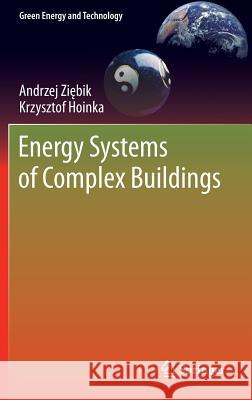Energy Systems of Complex Buildings » książka
Energy Systems of Complex Buildings
ISBN-13: 9781447143802 / Angielski / Twarda / 2012 / 346 str.
Energy Systems of Complex Buildings
ISBN-13: 9781447143802 / Angielski / Twarda / 2012 / 346 str.
(netto: 383,36 VAT: 5%)
Najniższa cena z 30 dni: 385,52
ok. 22 dni roboczych.
Darmowa dostawa!
The production and consumption of energy carriers in complex buildings take place within the network of interconnected energy processes. For this reason, a change carried out in one energy process influences other energy processes. Therefore, all balance equations of energy carriers should be investigated as a whole, and energy management of complex buildings creates a large energy system with internal relationships between energy installations and the equipment, as well as external relationships with the environment. Energy Systems of Complex Buildings presents the system approach to the energy-ecological analysis of energy management in complex buildings. Mathematical models of balancing the direct energy consumption, as well as cumulative energy consumption and cumulative emission of noxious substances are based on input-output analysis. Algorithms devoted to system analysis in the exploitation of energy management of complex buildings are included. In the case of ecological analysis, a new approach is presented basing on the idea of thermoecological costs. In this way, two groups of noxious influence (depletion of non-renewable energy resources and emissions of noxious substances) are taken into account. The LCA energy-ecological analysis of complex buildings has also been presented. Students, building designers, energy auditors, and researchers will learn the methodology of evaluating the energy and ecological effects by applying new technologies and devices in buildings, which influence future investigations concerning the energy and ecological analysis of complex buildings.











